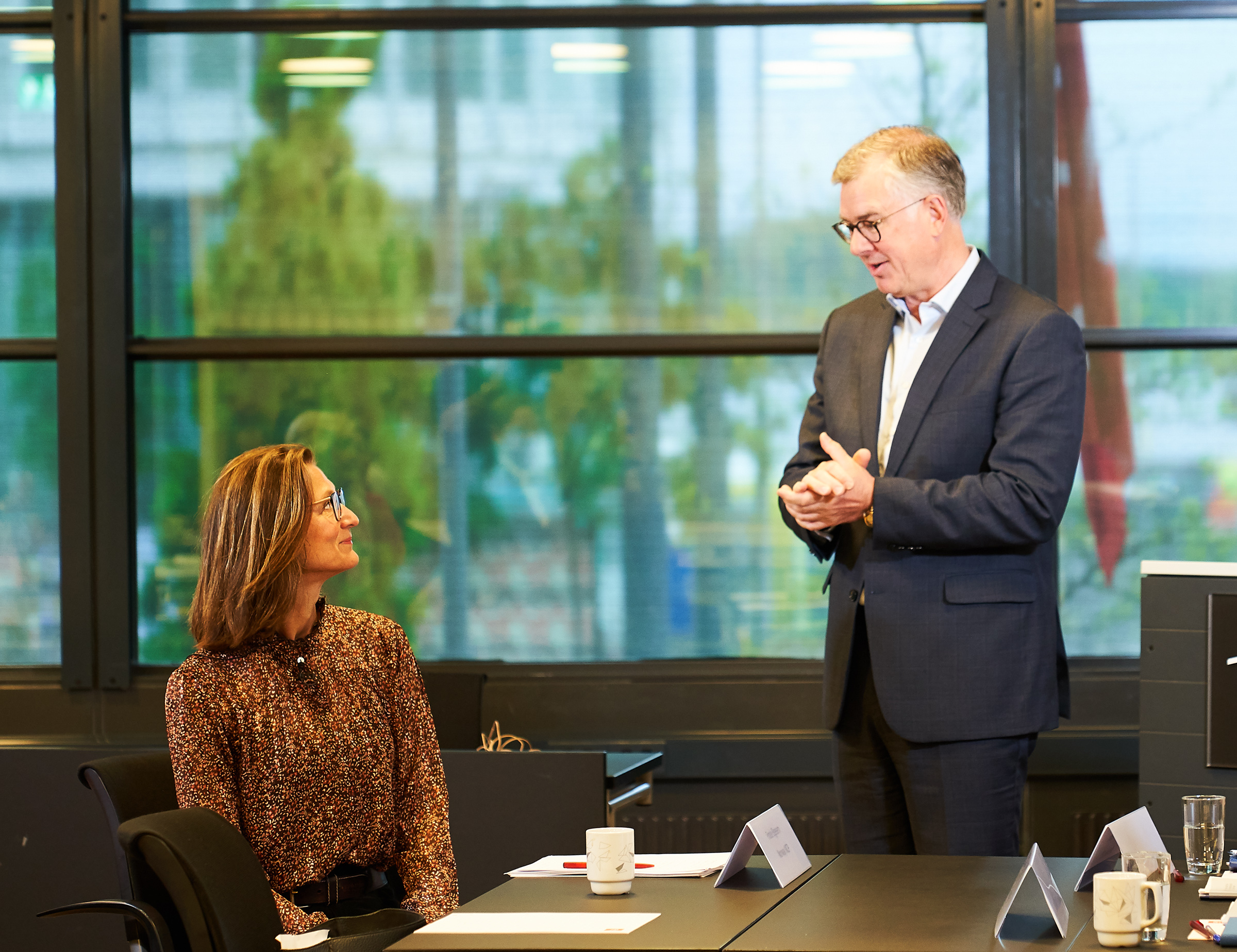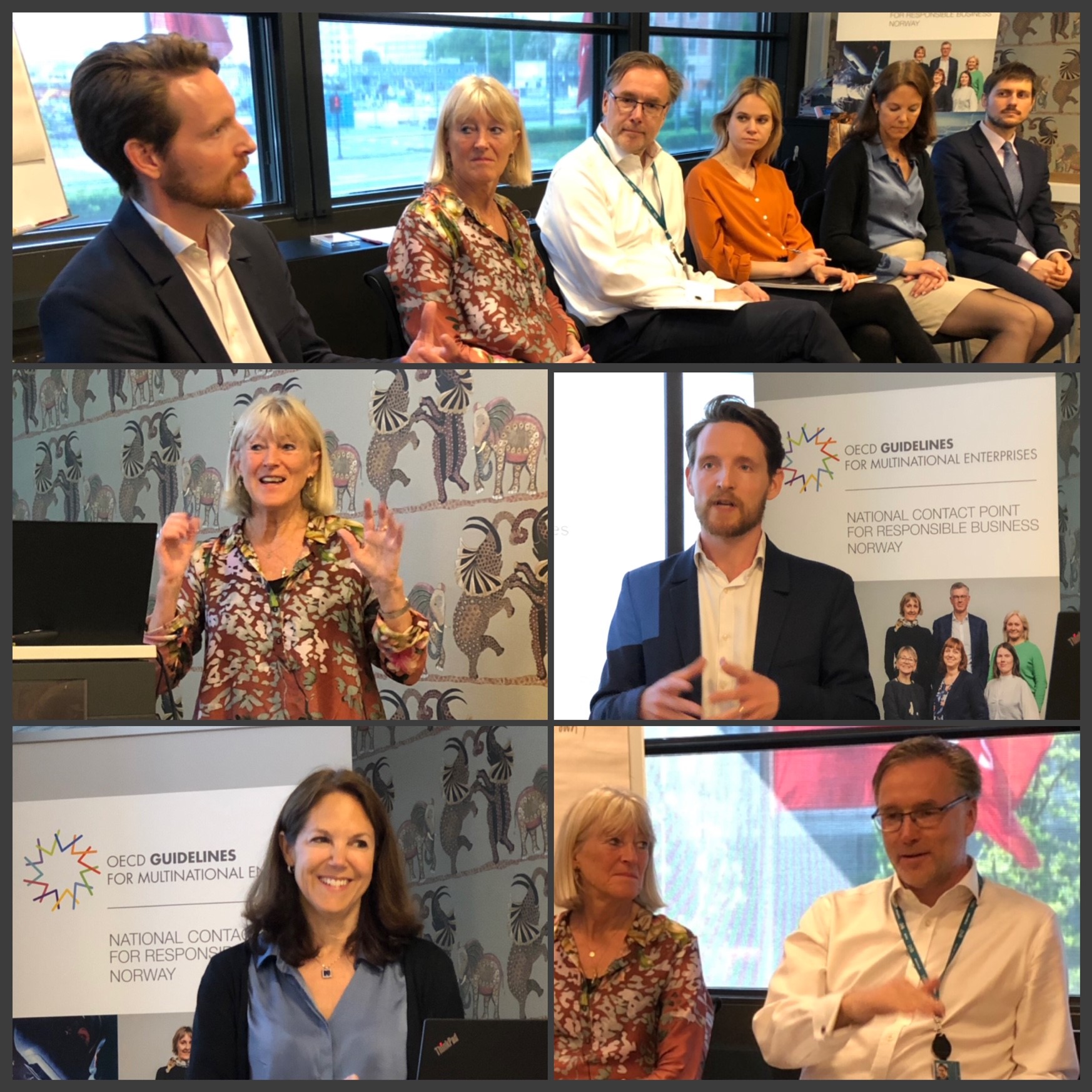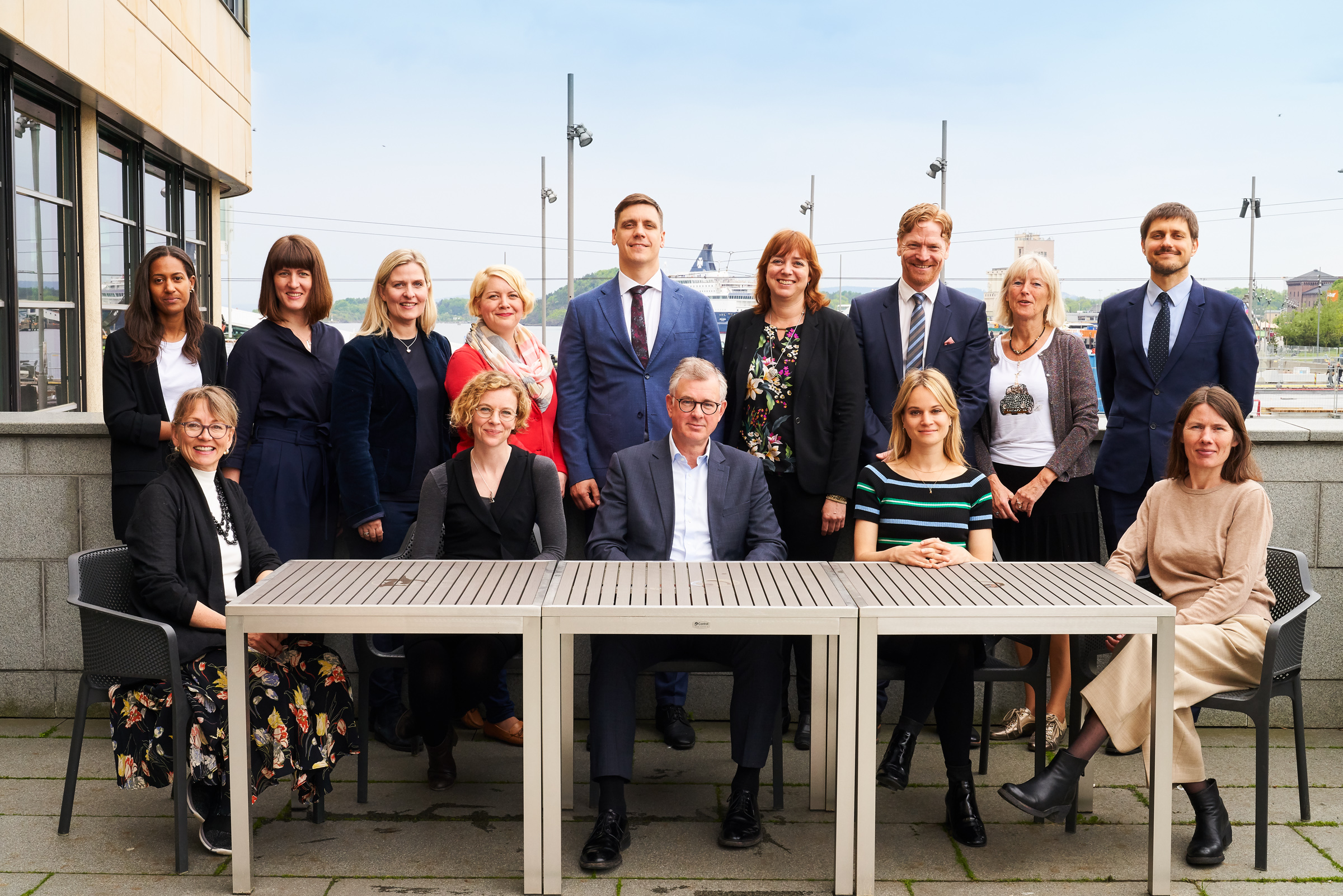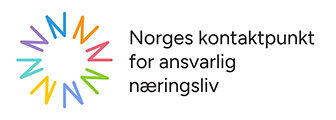Norway hosted seminar for Nordic Baltic NCPs
Norway’s National Contact Point hosted the seminar 20-21 May in Oslo, with focus on peer learning and sharing of best practices from the contact points’ work in promoting responsible business conduct. A new report from the OECD Ministerial Council says that the efficiency of the existing 48 contact points is very varying.

There is a long tradition for Nordic Baltic cooperation, and the national contact points in the region have an important task in promoting responsible business conduct and to ensure equal treatment in guidance and handling of specific instances.Marianne Hagen, State Secretary
The State Secretary stressed the OECD Ministerial Council’s request to step up efforts to ensure efficient and well resourced NCPs and that all NCPs are expected to undergo a peer review within 2023. Hagen underlined that businesses play a crucial role in achieving the sustainable development goals and that joint efforts for responsible business conduct is important. Read the State Secretary’s speech:
https://www.regjeringen.no/no/aktuelt/nordisk-baltisk-seminar/id2645824/
Presentations from the seminar is posted here (only for participants of the seminar).
Group work to share best practices on guidance and specific instances
The NCPs in Norway, Sweden, Denmark, Finland, Iceland, Latvia and Lithuania participated at the seminar in Oslo. All of the eight Nordic Baltic countries have established a NCP. The group has developed into a good forum for open discussion and exchange of experiences. Group work at this seminar concentrated on the following themes:
- How the contact points best can provide businesses with advice on how to conduct due diligence, guided by Barbara Bijelic and Kathryn Dovey from the OECD secretariat
- Concrete methods for successful handling of specific instances, guided by Norway and Denmark contact points.
External experts put light on central themes for responsible business conduct:
- A responsible finance sector (DNB, Norsif, MP Pension, OECD finance expert, Lithuania’s NCP)
- Money laundering scandal in the Baltic (Danish Task Force on money laundering)
- Labour relations in the Nordic Baltic region (LO – Norwegian Confederation of Trade Unions)
- A responsible textile sector (Pierre Robert Group)
- How civil society can contribute in dialogue with businesses (Forum for Development and Environment).
A responsible finance sector and money laundering scandal in the Baltic
Experts from the business community shared their experiences with risk based due diligence in their work. DNB, MP Pension and Norsif provided concrete examples on how the OECD guidance for the financial sector is incorporated in measures to identify and handle risk of negative impacts.

DNB is a big actor in lending for the shipping sector, and they shared examples on how the bank takes responsibility to avoid negative impacts of demolition of ships – beaching – in India. Linda Nielsen, from Denmark’s NCP and Task force on money laundering, presented the money laundering scandal, which shocked the financial sector in the Baltic.
OECD expert Barbara Bijelic explained the range of activities available to ensure a responsible financial sector, and stressed the need for further funding of the finance project in OECD.
The seminar participants were also interested in the specific instance in the Netherlands, where the Dutch NCP concluded that ING and other commercial banks should put effort into defining, where appropriate, concrete targets to manage its impact towards alignment with relevant national policies and international environmental commitments.
Ola Mestad lead the panel debate, which concluded that there is no longer doubt about the financial sector’s responsibility to avoid and handle negative impacts, but there is a need for more knowledge about and training in the due diligence method to avoid negative impacts on people, society and the environment, and not only about risk for the company.
Responsible textile sector and the role of the civil society in dialogue
Pierre Robert Group informed about extensive measures to map and handle risk in textile production, with an inspiring intervention which demonstrated how an enterprise systematically has incorporated due diligence in PRG’s relations with suppliers and business partners.
The Norwegian NGO Forum for Development and Environment encouraged the NCPs to collaborate with civil society and benefit from their knowledge of local conditions in dialogue with enterprises.
Regional cooperation between OECD NCPs
OECD’s annual report for 2018 calls on regional cooperation between NCPs. An internal seminar report, from the Nordic Baltic seminar, has been prepared and presented for OECD in June, in cooperation with Denmark’s NCP.
Norway’s NCP would like to thank everyone, both participants and presenters, for attendance and engagement!

